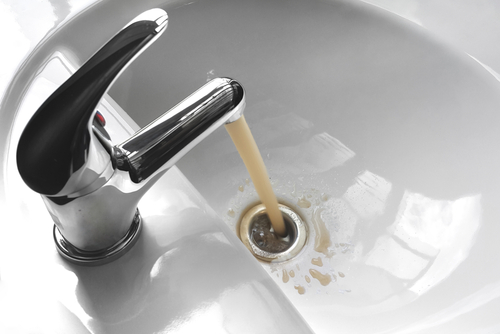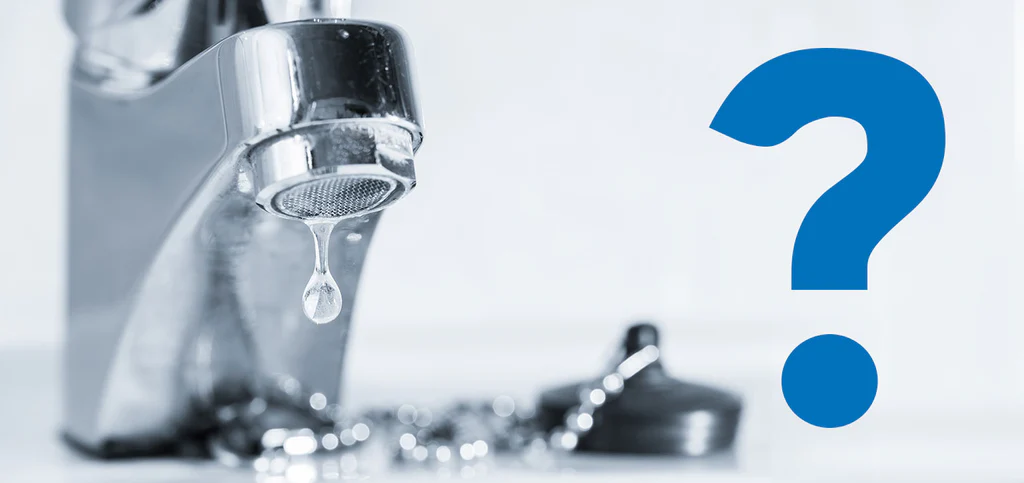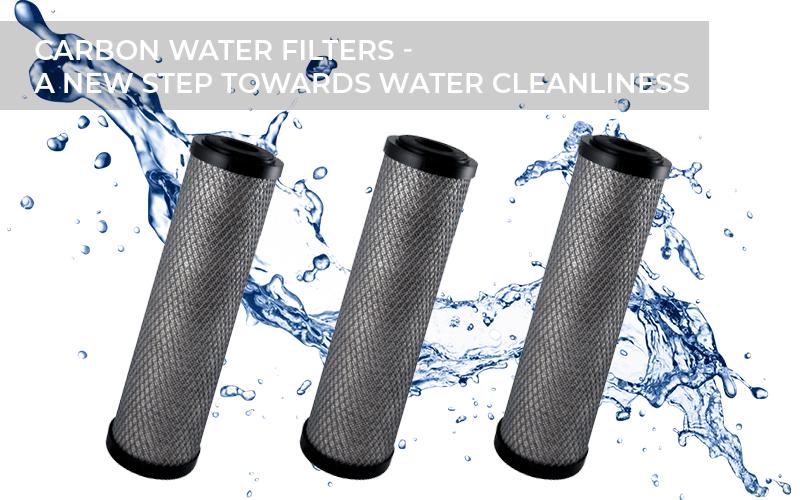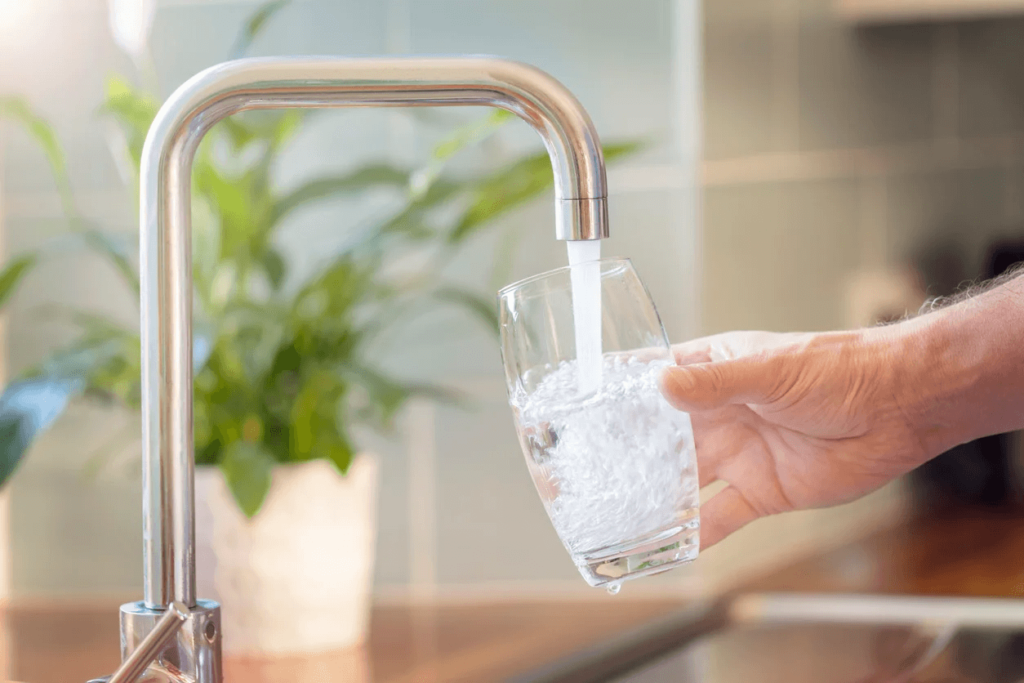Introduction
The Importance of Water Quality in Daily Life
Water is not just a basic necessity; it’s an integral part of our daily lives. From cooking and cleaning to hydration, the quality of water we use impacts our health and well-being. But what happens when this essential resource starts to taste off? Whether it’s water taste bitter or sour, it’s crucial to address these issues promptly. Poor water quality can not only ruin the taste of your morning coffee but also pose potential health risks.
The Problem: Why Does Tap Water Sometimes Taste Weird?
We’ve all been there: You fill a glass from the tap, take a sip, and immediately notice something is off. Maybe your water tastes bitter, or perhaps it has a sour taste that wasn’t there before. These changes in taste can be disconcerting and raise questions about water safety. This guide aims to explore the various reasons why water tastes different, focusing on common taste issues like bitter and sour flavors.
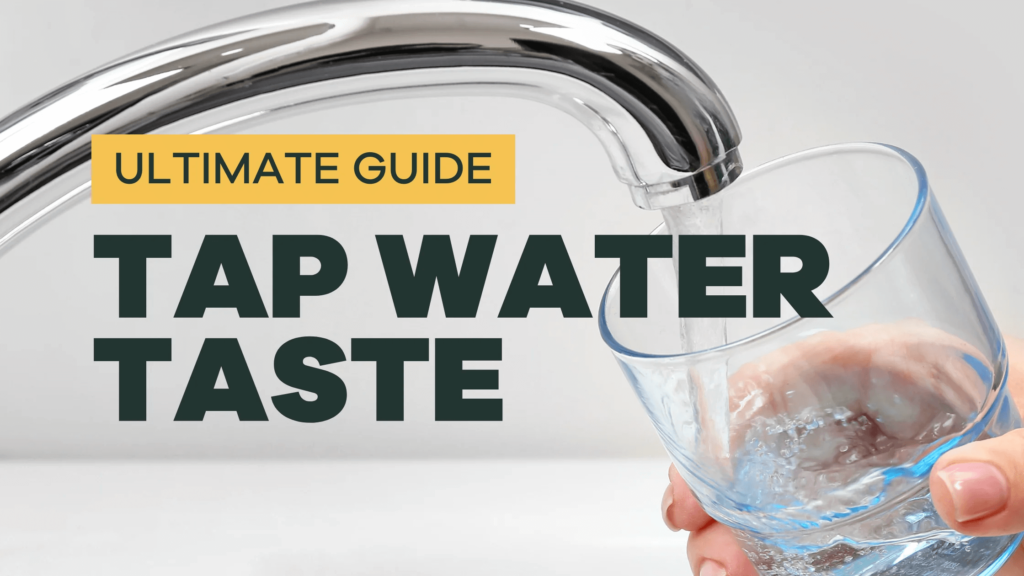
What This Article Will Cover
In this comprehensive guide, we’ll delve into:
- Why Does Tap Water Taste Weird?: Uncover the common culprits behind bitter tasting water and sour tastes.
- Is Weird-Tasting Water Harmful?: Investigate whether a bitter or sour taste in your water is a cause for concern.
- How to Diagnose Your Water’s Taste: Learn how to identify the root cause of your water’s peculiar taste.
- Proven Solutions to Improve Your Tap Water’s Taste: Discover effective methods to enhance your water quality.
- Expert Tips for Maintaining Water Quality: Gain insider advice to keep your water tasting great year-round.
By the end of this guide, you’ll have a thorough understanding of why water tastes bitter, why water tastes sour, and what actionable steps you can take to address these issues.
Stay tuned as we unravel the mystery behind these odd water tastes and offer proven solutions to ensure you’re drinking the best-quality water possible.
Why Does Tap Water Taste Weird?
Chlorine Taste
The Underlying Issue
Chlorine is a widely-used disinfectant in water treatment processes. It effectively kills bacteria and other microorganisms, ensuring that the water reaching your tap is free from harmful pathogens. However, the downside is that chlorine can leave a strong, chemical-like taste in the water.
In-Depth Analysis
The taste of chlorine is often described as bleach-like, and it can be particularly strong when the water is warm. This taste is not just unpleasant; it can also discourage people from drinking enough water, leading to decreased hydration.
Statistics & Studies
According to the Environmental Protection Agency (EPA), the allowable chlorine levels in drinking water can go up to 4 parts per million (ppm). While this level is considered safe for consumption, it is high enough to leave a noticeable taste.
Metallic Taste
The Underlying Issue
A metallic taste in tap water is usually a sign of metal ions like iron, copper, or zinc. This can be due to aging infrastructure, including old pipes and plumbing systems, or the natural mineral composition of your local water source.
In-Depth Analysis
Metals can leach into the water supply over time, especially in areas with acidic water. Not only does this result in a metallic taste, but it can also lead to health issues if the metal concentrations exceed safe levels.
Statistics & Studies
A study published in the Journal of Water and Health found that up to 25% of consumers have experienced a metallic taste in their tap water, making it one of the most common water quality complaints.
Earthy Flavor
The Underlying Issue
An earthy or musty taste usually originates from organic matter or algae in the water source. This is particularly common in areas that source their water from lakes or rivers.
In-Depth Analysis
While generally not harmful, an earthy taste can be off-putting and may discourage water consumption. It can also be a sign of algae blooms, which can produce harmful toxins.
Statistics & Studies
The Water Research Center notes that while these flavors are generally not a health concern, they can significantly impact consumer satisfaction and water consumption rates.
Water Taste Bitter or Sour
The Underlying Issue
A bitter taste in water is often a sign of high mineral content, such as calcium and magnesium. It can also be due to certain chemicals used in water treatment processes.
In-Depth Analysis
High mineral content can not only make your water taste bitter but also lead to scaling in pipes and appliances. While generally not a health risk, a bitter taste can be a sign of underlying water quality issues that may need to be addressed.
Statistics & Studies
According to the World Health Organization (WHO), a bitter taste is more often a sensory issue than a health concern. However, it’s always advisable to get your water tested if you notice a persistent bitter taste.
Sour Taste
The Underlying Issue
A sour taste in water is usually due to low pH levels, indicating that the water is acidic. Acidic water can corrode metal pipes, leading to metal ions leaching into the water.
In-Depth Analysis
While a sour taste itself is not harmful, it can be a sign of more serious underlying issues, such as pipe corrosion, which can lead to elevated levels of harmful metals like lead in your water.
Statistics & Studies
The Centers for Disease Control and Prevention (CDC) state that a sour taste can be an indicator of low pH levels, which should be addressed to prevent potential health risks.
How to Diagnose Your Water’s Taste?
Diagnosing the cause of your water’s weird taste is the first step towards finding a solution. In this section, we’ll guide you through the steps to identify the root cause and discuss various water testing methods and kits available.
Step-by-Step Guide to Diagnosing Your Water’s Taste
| Step | Action | Description |
|---|---|---|
| 1 | Initial Taste Test | Take a sip of your tap water and try to identify the taste. Is it bitter, sour, metallic, or chlorine-like? |
| 2 | Check for Odor | Sometimes, the smell can give you a clue. For example, a musty smell often accompanies an earthy taste. |
| 3 | Visual Inspection | Look at the water. Is it cloudy or clear? Sometimes, the appearance can indicate issues like sedimentation. |
| 4 | Consult Neighbors | Ask your neighbors if they are experiencing similar issues. This can help you determine if it’s a household issue or a larger community problem. |
| 5 | Use a Testing Kit | For a more accurate diagnosis, use a water testing kit. These kits can test for various contaminants and pH levels. |
Water Testing Methods and Kits
- pH Test Strips
These are simple strips that change color when dipped in water. They can quickly tell you if your water is acidic (which could explain a sour taste) or alkaline (which could be behind a bitter taste).
- TDS Meter
A Total Dissolved Solids (TDS) meter measures the concentration of dissolved substances in your water. High TDS levels can result in a bitter taste.
- Comprehensive Water Testing Kits
These kits come with multiple tests for various contaminants like lead, chlorine, and bacteria. They are more expensive but offer a detailed analysis of your water quality.
- Professional Testing Services
For the most accurate results, you can also opt for professional water testing services. These services will provide you with a detailed report, including recommendations for improving your water quality.
By following these steps and using the appropriate testing methods, you can accurately diagnose the cause of your water’s weird taste. Once you know the root cause, you can take effective measures to improve your water quality.
Proven Solutions to Improve Your Tap Water’s Taste
In the B2B sector, providing high-quality water treatment solutions is not just about meeting regulatory standards; it’s about delivering a product that enhances the user experience. In this section, we’ll discuss various water treatment options that can effectively improve the taste of tap water, focusing on their applicability and effectiveness in a business setting.
Carbon Filters
What They Do
Carbon filters are designed to remove chlorine, sediment, and volatile organic compounds (VOCs) from water. They are highly effective in eliminating the taste and odor of chlorine, making them a popular choice for businesses looking to improve the taste of their tap water.
Pros
- Highly Effective: Carbon filters can remove up to 99% of chlorine.
- Cost-Effective: They are relatively inexpensive to install and maintain.
- Easy to Use: Carbon filters can be easily integrated into existing plumbing systems.
Cons
- Limited Scope: They do not remove heavy metals or soften water.
- Frequent Replacement: The carbon filter needs to be replaced regularly for optimal performance.
Reverse Osmosis
What They Do
Reverse Osmosis (RO) systems use a semipermeable membrane to remove a wide range of contaminants, including heavy metals, salts, and bacteria. This makes them ideal for businesses that require high-purity water for various applications.
Pros
- Broad-Spectrum Filtration: RO systems can remove a wide range of contaminants.
- High Purity: They deliver water that is up to 99% pure.
- Scalable: RO systems can be scaled to meet the needs of businesses of all sizes.
Cons
- High Cost: Initial setup and maintenance can be expensive.
- Wastewater: RO systems produce a significant amount of wastewater.
Water Softeners
What They Do
Water softeners are designed to remove hard minerals like calcium and magnesium, which can cause a bitter taste in water. They are particularly useful for businesses in areas with hard water, as they can prolong the lifespan of appliances and plumbing systems.
Pros
- Effective in Removing Hardness: Softeners can effectively remove calcium and magnesium ions.
- Improved Appliance Efficiency: Softened water enhances the efficiency of water-using appliances.
- Less Scaling: Reduces scale buildup in pipes and fixtures.
Cons
- Does Not Remove Contaminants: Softeners are not designed to remove other types of contaminants like chlorine or heavy metals.
- Salt Usage: Some water softeners use salt, which may not be suitable for all applications.
By understanding the unique features, pros, and cons of these water treatment options, businesses can make informed decisions that meet their specific needs. Whether it’s removing the bitter taste caused by hard minerals or the sour taste from acidic water, the right water treatment system can provide a comprehensive solution.
Faucet Water Purifiers
What They Do
Faucet water purifiers are compact devices that attach directly to a tap to filter out various contaminants like chlorine and bacteria. They are an excellent option for cosumer that need a quick and convenient way to improve the taste and quality of their tap water without a complex installation process.
Pros
- Instant Filtration: Provides immediate access to filtered water right from the tap.
- Versatile: Suitable for various business settings, including offices, cafes, and small restaurants.
- User-Friendly: Easy to install and operate, making it convenient for businesses that don’t have specialized maintenance teams.
Cons
- Limited Capacity: Due to their size, faucet purifiers have a lower filtration capacity compared to other systems.
- Frequent Filter Replacement: The compact filters need to be replaced more often for optimal performance.
- Selective Filtration: May not remove all types of contaminants, such as certain heavy metals or industrial chemicals.
Faucet water purifiers offer a practical and cost-effective solution for consumer looking to improve the taste and quality of their tap water. They are particularly useful for consumer that require a flexible and easy-to-maintain water treatment option.
By adding a faucet water purifier to your range of water treatment solutions, you can offer your B2B clients a more convenient set of options to meet their specific water quality needs.
Expert Tips for Maintaining Water Quality
Maintaining water quality is not a one-time effort but an ongoing process. In this section, we’ll share expert tips and hacks to help quality of water, ensuring it remains safe, clean, and great-tasting.
Regularly Test Your Water
“Regular testing is the cornerstone of water quality maintenance,” says Dr. John Williams, a water quality expert at the Environmental Protection Agency (EPA). He recommends conduct water tests at least once a quarter to monitor for any changes in water quality.
Keep an Eye on Filter Replacement Schedules
“Timely filter replacement is crucial for the optimal performance of any water treatment system,” notes Sarah Johnson, a certified water technician. Her advice is corroborated by a study published in the Journal of Water Process Engineering, which emphasizes the importance of regular filter maintenance.
Monitor for Seasonal Changes
Dr. Emily Smith, a hydrologist at US Geological Survey (USGS), advises businesses to be aware of seasonal changes that can affect water quality. “Spring runoff and summer algae blooms can significantly impact the taste and safety of your water,” she says.
Use the Right Treatment for the Right Problem
“Using the wrong treatment can sometimes exacerbate the problem,” warns Dr. Mark Anderson, a researcher at Water Quality Association (WQA). He suggests that businesses should consult with water treatment professionals to determine the most effective solution for their specific water quality issues.
By following these expert tips, businesses can ensure that their water remains of the highest quality, meeting both safety standards and customer expectations. Regular testing, timely maintenance, and education are key components in a comprehensive water quality management strategy.
Conclusion
In this comprehensive guide, we’ve delved into the perplexing issue of why tap water can sometimes taste weird—be it a bitter taste, sour flavor, or other off-putting notes. We’ve explored the common culprits behind these tastes, from chlorine to minerals, and discussed various methods to diagnose and treat your water.
We’ve also highlighted the efficacy of different water treatment solutions, including Carbon Filters, Reverse Osmosis, Water Softeners and tap water filter, each with their unique pros and cons. These solutions are particularly beneficial for B2B clients like brand owners, water industry professionals, and distributors who are looking for reliable and cost-effective water filtration solutions.
The importance of maintaining water quality cannot be overstated, not just for taste but for overall health and well-being. It’s crucial to take proactive steps to ensure that the water you and your clients consume is of the highest quality.
Take Action Now
Don’t let another day go by with bitter tasting water or sour water affecting your quality of life or business operations. Invest in a high-quality water filtration system today. Whether you’re a wholesaler, a kitchenware business, or a water industry professional, now is the time to enhance your product line and offer your customers what they deserve: clean, pure, and great-tasting water.
For those who are still on the fence, remember: Water is life. Don’t compromise on quality.
Thank you for reading, and here’s to better-tasting water for all!


